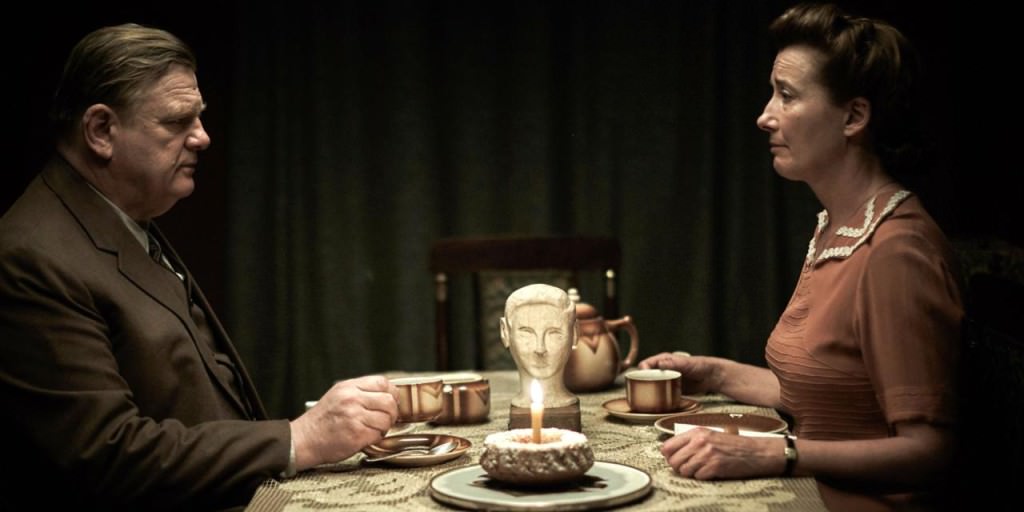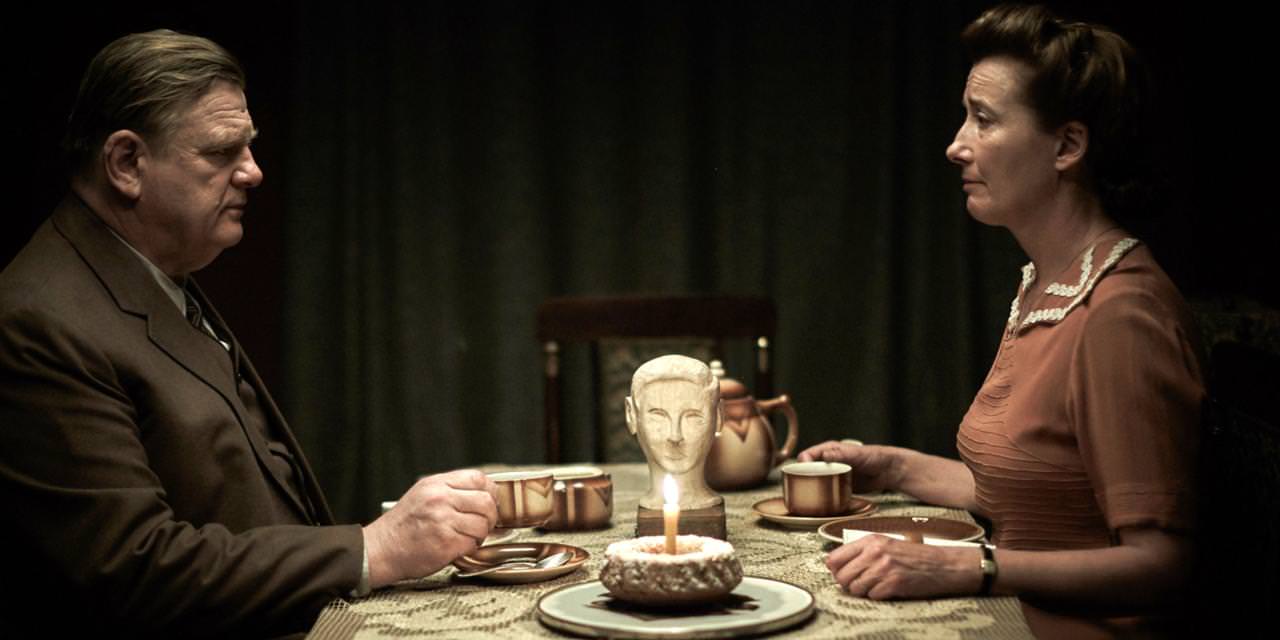
It’s very strange to be at the Berlin Film Festival, watching a film that is set in Berlin, which has Berlin in its title… and to hear all of the actors speaking in English. What makes it even stranger is that Alone in Berlin is all about someone writing postcards, so we keep seeing shots of these cards covered in neat German script. We’re constantly reminded that, for some reason, the characters write and talk in different languages – a time-honoured war-movie convention, I know, but not one you expect to see today in a sober drama about ordinary German citizens.
It’s not the producers’ fault that the characters are English-speakers, of course: they couldn’t get the funding to make Alone in Berlin in German. But the dialogue does add to the sense that the film is a solid, dated television movie, without the authenticity – or the heart-stopping tension – that made another Berlin-set story of oppression and resistance, The Lives of Others, an international hit.
Directed by a French actor, Vincent Perez, the film is adapted from Hans Fallada’s 1947 fact-based novel. Its heroes, Otto and Anna Quangel (Brendan Gleeson and Emma Thompson), are getting on with their modest lives in Berlin during World War Two. Otto is a conscientious factory foreman, Anna raises funds with the Nazi Wives’ League. In the evenings they convene in their cramped flat, where they say as little to each other as possible.
This numb routine continues even when they learn that their only son has been killed in action in France. But as people all over the city celebrate Germany’s glorious victory over the French, Otto concludes, in his stolid way, that the Nazi regime is fuelled by hatred and lies. He then hits upon a small method of “throwing sand in the gears of the war machine”. He will write subversive messages on postcards and then leave them on stairways and floors around Berlin: a ‘Hitler murdered my son’ here, a ‘Hitlerism will destroy Europe’ there. Anna insists on helping them, and the couple is united in a way that it hasn’t been for years.
Once you’ve got used to Gleeson and Thompson speaking English with German accents, you can appreciate how nuanced and understated their performances are. Thompson is a touchingly vulnerable yet dignified wife, and Gleeson keeps Otto’s rage buried deep beneath his gruff exterior. For him, there is nothing heroic about writing seditious postcards. It is simply the only logical thing to do.
Neither actor has ever been better, but Otto’s undemonstrative, getting-on-with-the-job attitude is one reason why the film isn’t as thrilling as it should be. For one thing, it means that the plot has nowhere to go. Otto has no plans to join a wider resistance movement, or to escalate his own personal campaign. His only strategy is to keep writing and distributing his postcards, and, as laudable as that might be, it does become repetitive.
There are no twists in Alone in Berlin. The Quangels’ sole tactic for avoiding capture is to nip out of a shop whenever a Nazi officer pops in, which, admittedly, seems to happen quite regularly. And we never know if the postcards are having any impact on the people reading them – that is, we don’t know until we reach the ludicrously unconvincing climax.
The film’s urgency is sapped even further by Otto’s indifference to whether he is caught. He feels that, after his son’s death, he has nothing to lose, so there is no dilemma for him to wrestle with. Nothing is at stake. No great triumph is in store if the campaign continues, and no tragic sacrifice is in store if it stops. Again, you can understand Otto’s fatalism, but it hardly keeps you on the edge of your seat. Like the Quangels, the viewer is just waiting for the inevitable moment when the authorities catch up with them.
A more interesting character, and the only one who is ever in any doubt about the morality of his behaviour, is Inspector Escherich (Daniel Brühl), an experienced policeman who believes that it his duty to track down the mysterious postcard writer, but who is appalled by the viciousness of the SS officer (Mikael Persbrandt) who keeps pushing him to make an arrest. It is Escherich, more than the Quangels, who is truly alone in Berlin, but in the end his story is no more thought-provoking than theirs. Over the course of the film, he learns that SS officers aren’t the nicest people in the world. Are we really supposed to be impressed?
Originally published HERE.









